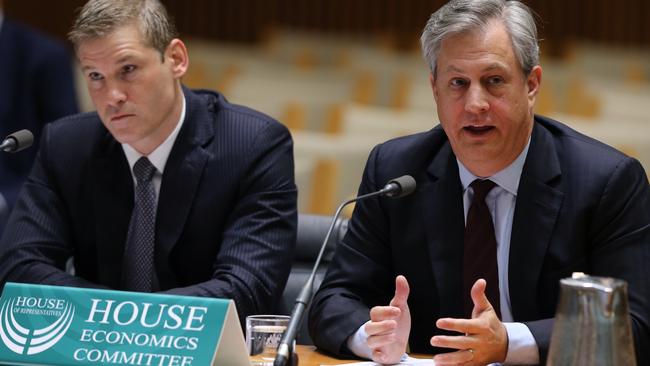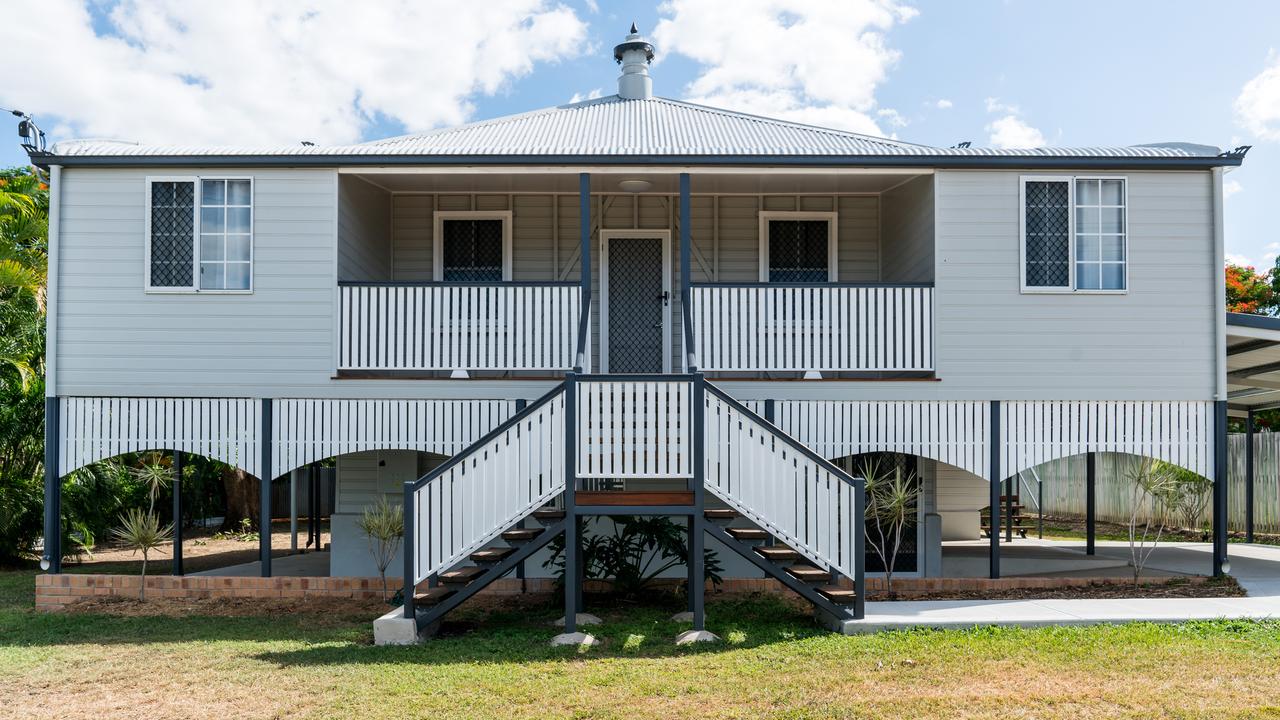Westpac ‘putting customers first’
WESTPAC boss Brian Hartzer does not believe there is a housing price bubble in Sydney or Melbourne, blaming price rises on supply constraints.

ONE of the nation’s biggest banks does not believe there is a housing price bubble in Sydney or Melbourne and, like federal Treasurer Scott Morrison, thinks the sharp rise in valuations is due to supply constraints.
Westpac boss Brian Hartzer says in his mind a housing bubble is when people believe prices only go up, start borrowing to buy a house and sell it within a year, only to buy a bigger property.
“That to me is the definition of a bubble, a credit-fuelled speculative bubble,” Mr Hartzer told the House of Representatives economics committee on Wednesday. “I don’t think that’s what’s happening in Sydney or Melbourne.”
What is happening in the nation’s two biggest cities is the consequence of severe supply constraints running into a significant step up in demand from foreign buyers.
“There has been a significant ramp-up in construction and a big chunk of that has probably been targeting overseas buyers whose desire for the nature of the property isn’t necessarily the quality local buyers would want,” he told the hearing in Canberra.
But as a result of a crackdown in China on outflows of capital, a number of these developments where foreign buyers have put money down on an apartment are now having trouble settling.
“That is potentially creating a bit of a glut of supply which may or may not be what the local buyers want to buy and are taking a lot longer to clear.”
The Westpac boss was the last banking chief to appear in the latest parliamentary review of the big four banks.
His comments came after a recent warning by the Organisation for Economic Cooperation and Development of the potential danger facing the Australia economy from ballooning house prices.
The Paris-based organisation reiterated the warning in a new report on Tuesday, not just for Australia, but also for Canada, Sweden and the UK, which have all endured a similar housing experience.
“As past experience has shown, a rapid rise of house prices can be a precursor of an economic downturn,” it says.
Earlier, Mr Hartzer said his bank was putting customers first by backing open data and denied it did the opposite by suggesting they join its poorly performing superannuation fund.
The Australian Securities and Investments Commission has taken Westpac to federal court over allegations it breached the “best interest duty” laid out by future of financial advice reforms when it recommended customers consolidate superannuation accounts into a relatively poorly performing Westpac-related fund.
Mr Hartzer told the committee a disclaimer had made it clear his bank was only providing “general advice” on switching super. He said that’s why it was difficult to go into much detail with customers about the BT Financial fund’s performance.
“It’s a balanced fund that’s designed to deliver returns through cycles in different markets that, while it might appropriate for some, it might be inappropriate for others,” Mr Hartzer said.
“But in a general advice conversation, there’s a limit to the extent to which you can take that into account.”
If ASIC won the case against Westpac, Mr Hartzer said, it would be “effectively be close to impossible to provide general advice”.
Labor frontbencher Matt Thistlethwaite asked the CEO if Westpac had merely switched customers to a super fund with higher fees. “Potentially the returns may be better,” Mr Hartzer replied, although he acknowledged his unhappiness at the BT fund’s performance.
However, Mr Hartzer said he keen on the idea of opening up customer’ data to rivals with the aim of stoking competition, but said he was wary about exposing them to the risk of financial fraud.
Mr Hartzer said players outside traditional banking such as fintechs and governments had a role to play in data sharing and encouraging competition. “We’re relatively agnostic about who leads the process, we are supportive of open data ... [but] our obligations to protect customer data to protect them from fraud and all that are very real,” he said.



